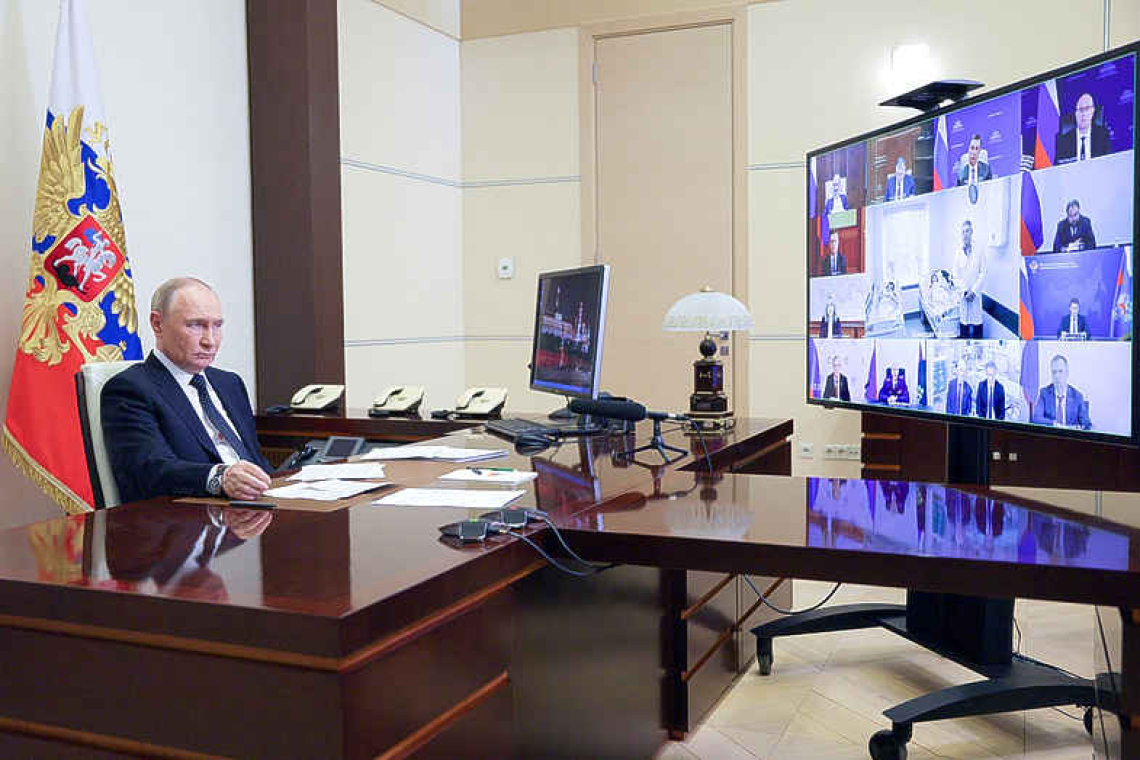MOSCOW/WASHINGTON--Russian President Vladimir Putin told U.S. President Donald Trump on Wednesday that he would have to respond to Ukrainian drone attacks on Russia's nuclear-capable bomber fleet, while also describing peace talks with Ukraine as "useful."
The war in Ukraine is intensifying after nearly four months of cajoling and threats to both Moscow and Kyiv from Trump, who says he wants peace after more than three years of the deadliest conflict in Europe since World War Two.
After Ukraine bombed bridges and attacked Russia's fleet of bombers deep in Siberia and Russia's far north, Putin on Wednesday said he did not think Ukraine's leaders wanted peace. Shortly after Putin discussed the attacks with top ministers in Moscow, Trump said he had spoken by telephone with Putin for one hour and 15 minutes, and that they had discussed the Ukrainian attacks and Iran.
"We discussed the attack on Russia’s docked airplanes, by Ukraine, and also various other attacks that have been taking place by both sides. It was a good conversation, but not a conversation that will lead to immediate peace," Trump said on social media.
Russia has unleashed several massive aerial attacks on Ukraine over recent weeks. "President Putin did say, and very strongly, that he will have to respond to the recent attack on the airfields," Trump said.
A foreign policy aide to Putin, Yuri Ushakov, said the Russian leader told Trump on the call that ceasefire talks between Moscow and Kyiv have been productive, despite what he termed attempts by Ukraine to "disrupt" them. "Let me stress that our president described in detail the content of the talks and that these talks on the whole were useful," Ushakov said.
Memorandums outlining peace plans were exchanged and will be analysed, Ushakov said, "and we hope that afterwards the two sides will be able to continue their talks."
Ushakov confirmed the two presidents discussed other international issues, particularly the Middle East conflict and how Russia could help deal with Iran and its nuclear programme. On Iran, Trump said he believed Putin agreed with Washington that Iran "cannot have a nuclear weapon," and accused Tehran of "slowwalking" decisions regarding the talks.
Trump has been unusually silent on the Ukrainian attacks on the Russian bombers - one of the three pillars of Russia's nuclear arsenal - though Moscow demanded that the United States and Britain restrain Ukraine. The Kremlin said Trump had told Putin that Washington was not informed in advance of the Ukrainian attacks. Trump's Ukraine envoy said the risk of escalation from the war in Ukraine was "going way up" after the strikes.
Russia and the United States are by far the world's biggest nuclear powers: together they hold about 88% of all nuclear weapons. Each has three ways of nuclear attack - strategic bombers, land-launched intercontinental ballistic missiles and submarine-launched ballistic missiles - and any attack on any part of the "triad" is considered a grave escalation.
In some of his most hawkish remarks in recent months on the outlook for peace, Putin on Wednesday said the bridge attacks had been directed against civilians and accused Ukrainian leadership of being a "terrorist organisation" supported by powers who were becoming "terrorist accomplices."
"The current Kyiv regime does not need peace at all," Putin said at a meeting with senior officials. "What is there to talk about? How can we negotiate with those who rely on terror?"
Ukraine has not commented on the bridge attacks. It denies it targets civilians, as does Russia, though civilians have been killed by both sides.
Kyiv has similarly accused Moscow of not seriously wanting peace, citing as evidence Russian resistance to an immediate ceasefire. Russia says certain conditions must first be met.
Putin, in his public remarks, did not mention the bomber attacks, which came just before Russia and Ukraine met for direct peace talks in Istanbul where Moscow set out what the United States has called "maximalist" aims.







